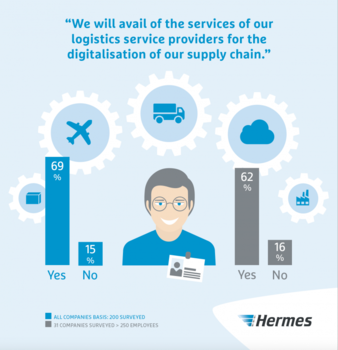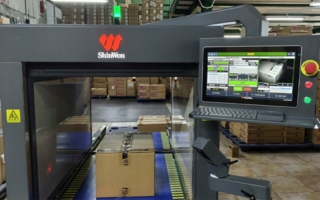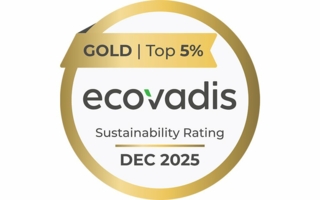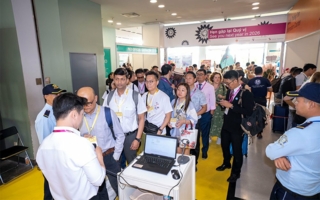05/12/2018 – Hermes Germany — auf Deutsch lesen
Increasing efficiency in the supply chain
An increase in efficiency within the supply chain will only be possible through cooperation with customers and suppliers
This three-quarters of German companies do believe.The blockchain technology is attributed a great potential in this context. These are some of the results of the 9th Hermes Barometer on "Collaboration in the Supply Chain", a survey conducted by Hermes Germany among 200 logistics decision makers from German companies.
According to the Hermes Barometer, more than one third of the logistics decision makers surveyed believe that blockchain technology has the potential to bring about enormous changes in logistics that go far beyond the "regular" digitization process. In larger companies with more than 250 employees, even one in two agrees with this statement.
Blockchain technology for more data security
More than half of the surveyed respondents from larger companies believe that technology is becoming more important for an increase in data security within the collaborative process. Every third logistics decision maker from smaller companies agrees with this statement. Nevertheless, only 21 percent of all respondents have already collected information about the required technology and are familiar with the functionalities. Larger companies appear to have a higher level of knowledge in this area (42 percent of the interviewed decision makers).
ERP and RFID of great importance
In addition to blockchain (35 percent), other technologies are also important when it comes to improving collaboration with partners in the supply chain. Most importantly enterprise resource planning systems (ERP) (46 percent), followed by sensor technology for monitoring and data collection (such as RFID, 44 percent). Larger companies also rate cyber physical systems (CPS), e.g. GPS real-time tracking of the supply chain as significant for improving collaboration (65 percent). Up to now, only one-third (33 percent) of the logistics decision makers surveyed have been able to identify the value of using big data in order to improve forecasting.
Main obstacle: communication and costs
Although the vast majority of decision makers are aware that co-operation with customers and suppliers is the key to increasing efficiency, there are many obstacles along the way. Collaboration is particularly hampered by communication issues between the parties (56 percent), followed by the time and expense of implementing necessary technologies (51 percent) and a lack of human resources (46 percent). Also, 42 percent of respondents complain about a lack of willingness to optimize cooperation. For larger companies with more than 250 employees, this is true for as many as 61 percent of logistics decision makers. "A trustful cooperation between the supply chain partners is of course the alpha and the omega of success. Trust-enhancing measures such as clear rules and contracts can encourage the willingness to cooperate," says Jan Bierewirtz, CCO and Division Manager Commercial at Hermes International, a division of Hermes Germany.
Using internal know-how and expert knowledge
Seven out of ten companies believe that they have the necessary know-how to optimize the collaboration with their partners and to plan and implement their logistics processes self-sufficiently. At the same time, however, seven out of ten companies say they will seek the support of their logistics service providers as they digitize their supply chain. "In order to optimize processes, it is important for companies to be aware of their core competences and to fill existing gaps in knowledge with competent experts," sums up Bierewirtz.
Logistics experts such as Hermes Germany help companies to identify and use optimization potential along the supply chain. As part of a holistic customer analysis, existing structures are examined, followed by recommendations for action and concrete measures to increase efficiency within the supply chain. The complete Hermes Barometer and more information on supply chain management and global e-commerce can be found HERE
About the survey
Participants: 200 logistics decision makers
Method: Telephone survey
Survey period: September 2018




